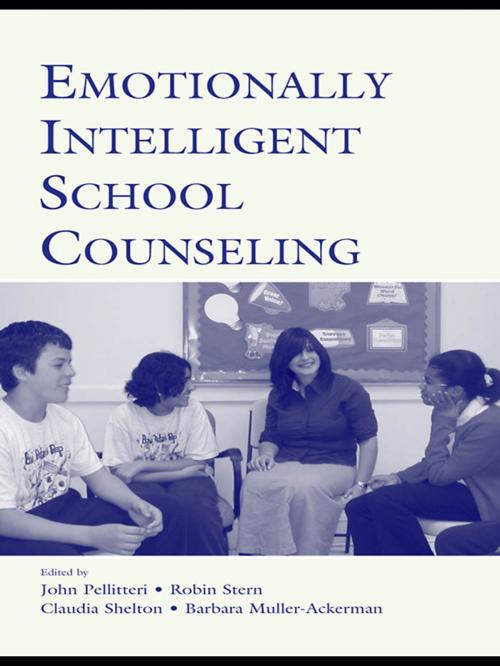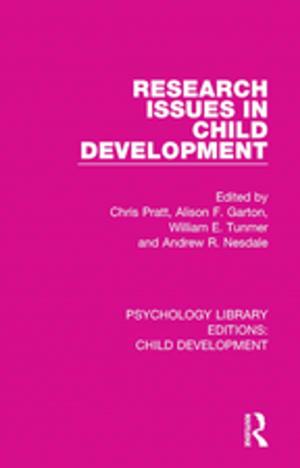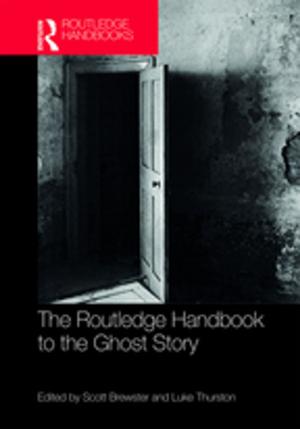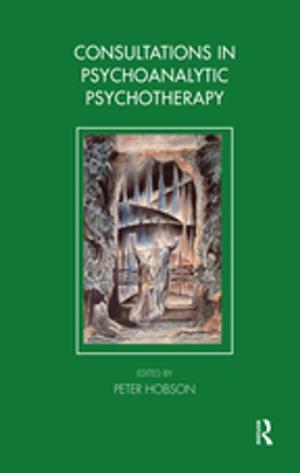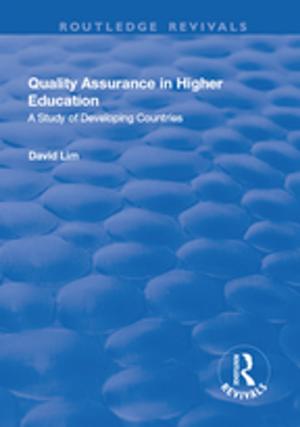Emotionally Intelligent School Counseling
Nonfiction, Health & Well Being, Psychology, Counselling, Reference & Language, Education & Teaching, Counseling & Guidance| Author: | ISBN: | 9781135610838 | |
| Publisher: | Taylor and Francis | Publication: | April 21, 2006 |
| Imprint: | Routledge | Language: | English |
| Author: | |
| ISBN: | 9781135610838 |
| Publisher: | Taylor and Francis |
| Publication: | April 21, 2006 |
| Imprint: | Routledge |
| Language: | English |
The concept of emotional intelligence (EI), which has steadily gained acceptance in psychology, seems particularly well suited to the work of school counselors and school psychologists who must constantly deal with troubled and underperforming students. To date, however, no book has systematically explained the theoretical and scientific foundations of emotional intelligence and integrated this information into the roles and functions of school counselors and other school personnel. In addition to illustrating how social emotional learning is important to both individual students and to school climate, the book also shows school counselors how to expand their own emotional awareness and resiliency.
Key features of this outstanding new book include:
*ASCA Guidelines. The book integrates the latest findings from the field of social emotional learning with the new ASCA guidelines for school counselors.
*Real-life Cases. The book moves quickly from an overview of basic definitions, theories, and guidelines to stories of real counselors, administrators, teachers, and parents.
*Author Expertise. John Pellitteri is Professor and Director of the Graduate Program in School Counseling Queens College (CUNY). A former school counselor, he is a leading researcher in the area of emotional intelligence. Barbara Ackerman is a K-5 school counselor and retiring Vice President of the American School Counseling Association (ASCA) Elementary School Division. Claudia Shelton has been a school counselor in grades 6-12 and currently heads a firm specializing in professional development for schools. Robin Stern is an adjunct associate professor and researcher at Columbia Teachers College and a specialist in social emotional learning for the New York City Board of Education.
This book is appropriate as a supplementary text in school counseling courses and as a professional reference work for practicing school counselors, counselor educators, counseling psychologists, school psychologists, and school administrators.
The concept of emotional intelligence (EI), which has steadily gained acceptance in psychology, seems particularly well suited to the work of school counselors and school psychologists who must constantly deal with troubled and underperforming students. To date, however, no book has systematically explained the theoretical and scientific foundations of emotional intelligence and integrated this information into the roles and functions of school counselors and other school personnel. In addition to illustrating how social emotional learning is important to both individual students and to school climate, the book also shows school counselors how to expand their own emotional awareness and resiliency.
Key features of this outstanding new book include:
*ASCA Guidelines. The book integrates the latest findings from the field of social emotional learning with the new ASCA guidelines for school counselors.
*Real-life Cases. The book moves quickly from an overview of basic definitions, theories, and guidelines to stories of real counselors, administrators, teachers, and parents.
*Author Expertise. John Pellitteri is Professor and Director of the Graduate Program in School Counseling Queens College (CUNY). A former school counselor, he is a leading researcher in the area of emotional intelligence. Barbara Ackerman is a K-5 school counselor and retiring Vice President of the American School Counseling Association (ASCA) Elementary School Division. Claudia Shelton has been a school counselor in grades 6-12 and currently heads a firm specializing in professional development for schools. Robin Stern is an adjunct associate professor and researcher at Columbia Teachers College and a specialist in social emotional learning for the New York City Board of Education.
This book is appropriate as a supplementary text in school counseling courses and as a professional reference work for practicing school counselors, counselor educators, counseling psychologists, school psychologists, and school administrators.
